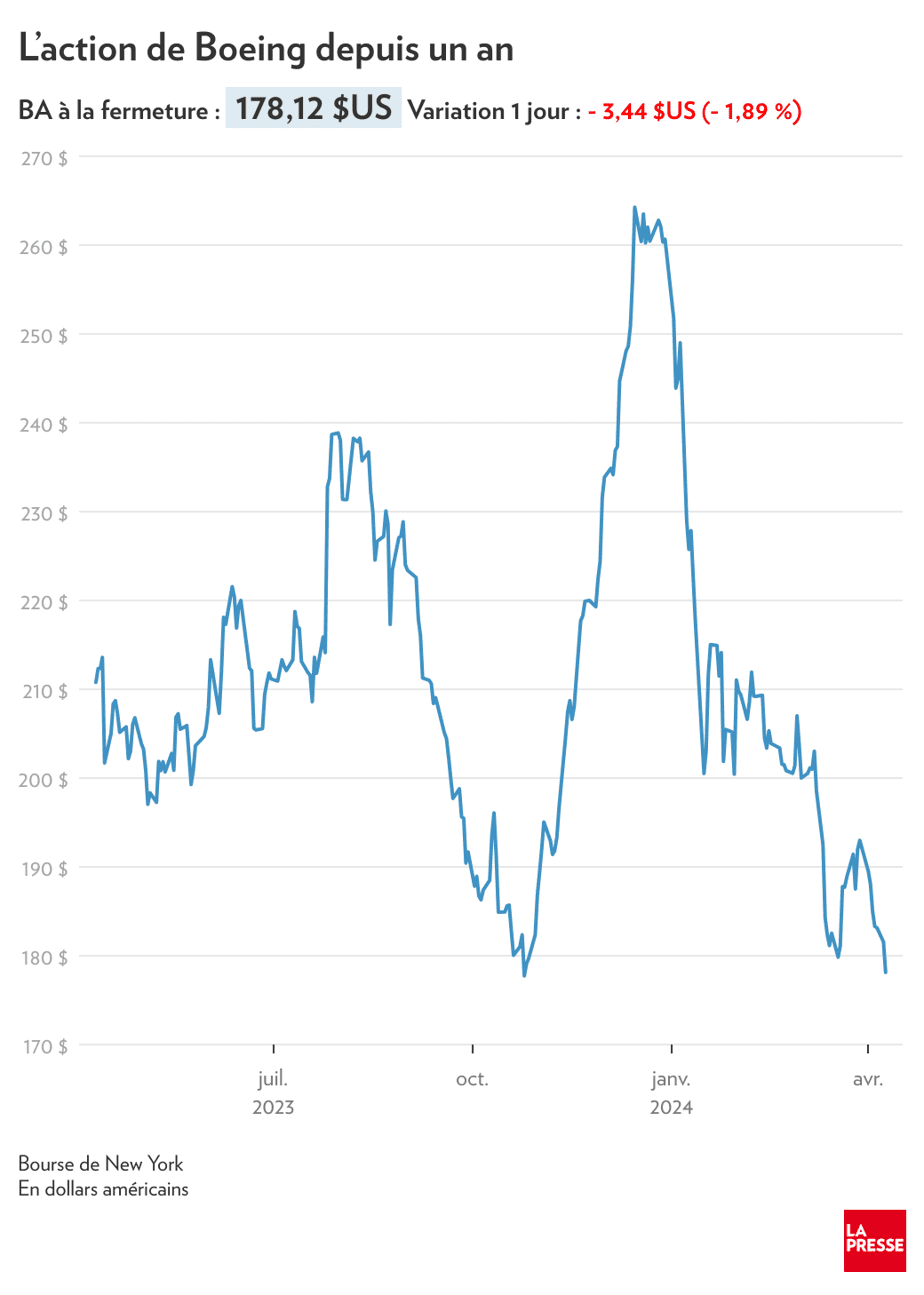
(New York) Incidents involving the loss of cabin parts, engine problems or mechanical problems have been occurring at Boeings in the United States for several months. So much so, that the Federal Aviation Administration (FAA) is investigating a whistleblower's complaint about the 787 Dreamliner's safety issues. The New York Times. Overview
The whistleblower, a Boeing engineer who worked on the plane, alleged that sections of the 787's fuselage were improperly fastened together, weakening the plane over time, the newspaper reported.
“These claims about the structural integrity of the 787 are inaccurate and do not reflect the thorough work Boeing has done to ensure the long-term quality and safety of the aircraft,” the American plane maker said in a statement sent to Bloomberg News.
For some experts, it is an “unfavorable alignment of planets” resulting from production and management problems.
Black series
Since the Jan. 5 crash of Alaska Airlines' Boeing 737 MAX 9, when a door on the plane came loose, eyes have been fixed on the American manufacturer.
United Airlines was particularly concerned: rudder pedals, a tire missing on takeoff, a metal part of the fuselage missing, the airspeed indicators incorrect.
In recent days, Southwest has identified a portion of the engine cowling that was partially torn off during takeoff on Sunday.
Thursday's takeoff was canceled due to a “possible engine problem,” with the pilot citing “overheating brakes” and “left engine fire.”
Each time, it was Boeing — except on March 4, when a United Airbus 320 returned to Earth due to an “equipment problem.”
A hood that pops out, a wheel that falls off, a door that rips, it's still rare. There is an unfavorable alignment of planets on the totally abnormal damage.
Bertrand Wilmer, aeronautical expert and consultant at iCare Aeronautics
Technical reasons
For professionals, there are three possible problems.
The design problem involved 346 deaths in two Boeing 737 MAX 8 crashes in 2018 and 2019.
On the other hand, the Alaska Airlines incident — which caused some minor injuries — was due to a product problem. The Boeing 737 Max 9 aircraft was delivered in October.
A preliminary report by the US Transportation Safety Agency (NTSB) released on February 6 revealed that “four bolts intended to prevent the cap holder from moving upwards were missing”.
These bolts were removed at the Boeing factory to replace damaged rivets.
The third reason, according to experts, is the management problem. And this is a common theme in many of the incidents noted in recent months.
While the first two reasons are the responsibility of the aircraft manufacturer, the third is the responsibility of the airlines.
From the maintenance company's quality control overseen by the FAA, Mr. Emphasizes Wilmer.
“Once the planes are delivered, Boeing no longer interferes,” added Richard Aboulafia, director of the consulting firm Aerodynamic Advisory, underscoring “the problem in the field of maintenance around the world.”
Should we be worried?
“Despite millions of people flying every year, there hasn't been a single fatality in the United States for over ten years,” Mr. Aboulafia noted. “But hundreds of people die on the roads every day. »
Airbus has not been spared incidents, including production incidents such as contaminated Pratt & Whitney engine components, which affect hundreds of planes, causing grounding for several months.
“It was known, but in a small committee”, Mr. Wilmer stated.
But “if you look for problems, you'll find them”, mr. With Aboulafia in mind, thousands of airplanes fly around the world every day.
“Every incident on a Boeing plane this year has made headlines, suggesting that Boeing planes are not safe,” analysts at asset manager Bernstein noted in late March.

“The reality is that the number of incidents in the United States on Airbus and Boeing aircraft so far this year is proportional to their number of aircraft in American airline fleets,” they said.
The American commercial fleet currently in service consists of 4,769 aircraft, 60% of which are Boeing and almost the entire balance is Airbus, according to specialist firm Cerium.
Every day, US airlines operate more than 26,000 flights and carry 2.6 million passengers in nearly 80 countries, reports the Airlines for America trade association.
Boeing shares fell 1.89%, or US$3.44, to US$178.12 in New York on Tuesday.





